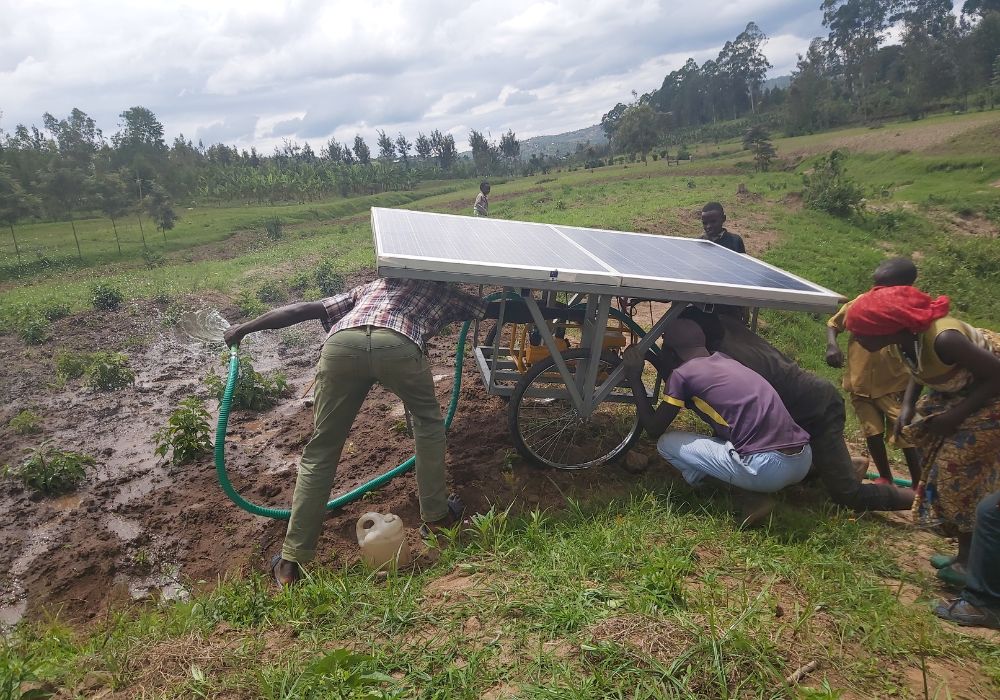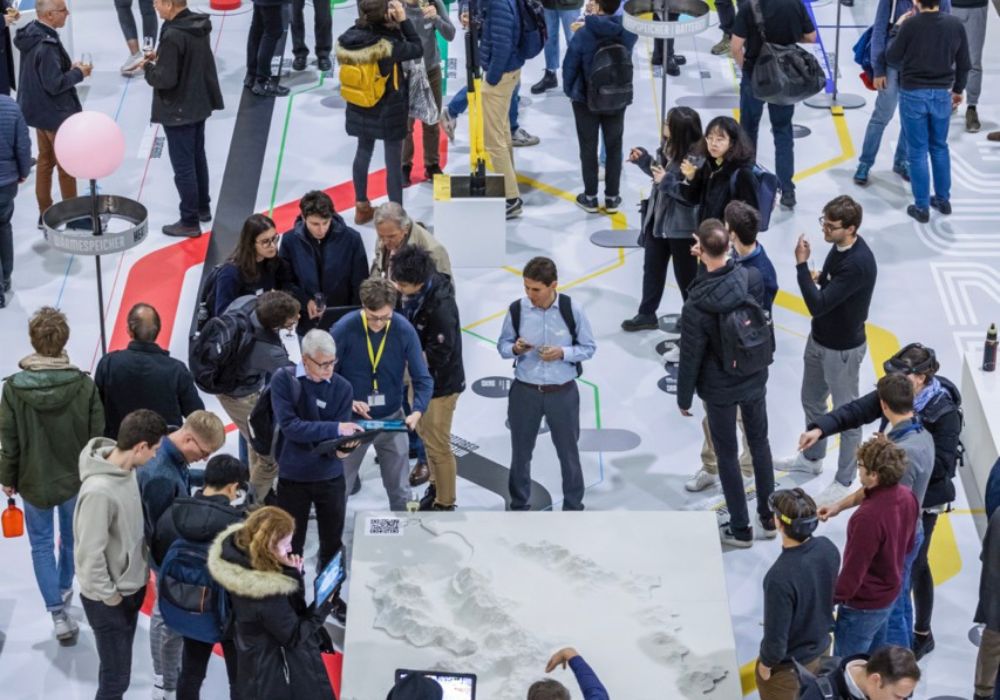Goal 7: Affordable and Clean Energy
Ensure access to affordable, reliable, sustainable and modern energy for all
Access to energy is an essential prerequisite to achieving many sustainable development goals that extend far beyond the energy sector. At present, 1.6 billion people worldwide have no access to electricity, while 2.5 billion rely on traditional biomass as a source of energy. Goal 7 thus advocates universal access to affordable, reliable, modern energy services. Given that sustainable development hinges on climate-friendly economic development, Goal 7 aims for a substantial increase in the share of renewables in the global energy mix and a doubling in the global rate of improvement in energy efficiency. Another target is to promote research in renewable energy and energy efficiency as well as investment in energy infrastructure and clean energy technologies.
Source: www.eda.admin.ch/agenda2030 (edited)
Contributions of ETH Zurich (examples)
Within the framework of its core areas of research, education, campus and dialog with society, ETH Zurich contributes to Goal 7, for example, by the following activities:
More efficient electric devices

The Advanced Power Semiconductor Laboratory does research in the world of semiconductors, exploring their fundamental properties and practical applications, particularly in power electronics. These semiconductors play a pivotal role in efficiently converting and transmitting power to everyday devices. Take, for instance, the process of charging a laptop – the efficiency and reliability of semiconductor switches are crucial. Highlighting the significance of efficient energy transfer, studies suggest that using high-efficiency adapters could have saved energy equivalent to shutting down multiple power plants. Beyond the technicalities, there's a broader vision of a sustainable future. With the ongoing advancements in telecommunications, there's a concurrent emphasis on clean, efficient mobility, ensuring that while we embrace the benefits of global connectivity and travel, we also prioritize eco-friendly practices. Efficient adapters, sustainable mobility, and conscientious choices can pave the way for a greener future. Read more here.
Speeding up the energy transition

In the Energy and Technology Policy Group research is being conducted on accelerating the global energy transition. Delving deep into public policy's role, the research focuses on how to switch to sustainable energy systems. This encompasses both replacing carbon-emitting technologies in developed nations and empowering low-income countries with renewable energy access, such as solar power. By analyzing technical, economic, societal, and political barriers, the research offers insights for policymakers on transitioning to cleaner, more affordable energy solutions. Additionally, it's evident that many clean energy technologies are not just available but also becoming increasingly cost-effective. Economic policies and societal initiatives, when cohesively aligned, can further expedite this pivotal transition, laying the groundwork for a sustainable future. Read more here.
How to power the energy transition

At the Energy Science Center, pioneering research is propelling the global energy transition. Recognizing that this shift goes beyond single technologies, the focus is on an interconnected systems approach. This complex realm of clean energy sees every component intricately interacting with the other. Through rigorous analysis, researchers are evaluating technologies and systems to curtail greenhouse gas emissions and achieve a net zero target. This includes harnessing energy sources like photovoltaics and wind power and utilizing storage technologies and end-use innovations. With the aid of mathematical models, the team simulates and observes system reactions to changes, leading to actionable insights. These findings offer practical guidance for policy formulation, emphasizing the necessary technologies for the energy shift. Additionally, to enhance public understanding, an augmented reality display of the current and prospective energy system is exhibited at the Swiss Museum of Transport. The message is clear: the energy transition is within reach, with every effort counting. Read more here.
Paths to the Energy Future
At ETH Zurich’s Energy Science Center (ESC), more than 70 institutes and laboratories collaborate in the field of energy to create a sustainable energy future for Switzerland and the world. At events such as the Energy Week @ ETH (only available in German), seminars or symposia and the Energy Blog @ ETH Zurich, the ESC informs the public about its findings.
Pooled Competences
ETH Zurich is the Leading House of three Swiss Competence Centres for Energy Research (SCCER), which develop the knowledge and technologies for the efficient use of energy by Swiss industry, for a sustainable transport system and for the supply of electricity from hydropower and geo-energy: Efficiency of Industrial Processes (external page SCCER EIP), Supply of Electricity (external page SCCER-SoE) and Efficient Technologies and Systems for Mobility (external page SCCER Mobility).

Teaching and Continuing Education
In the MSc in Energy Science and Technology (MEST), students face the challenge of developing future sustainable energy systems, or in the MAS | CAS in Mobilität der Zukunft (only available in German), the focus is on the sustainable design of future mobility. The departments of Information Technology and Electrical Engineering (D-ITET) and Mechanical and Process Engineering (D-MAVT), or Humanities, Social and Political Sciences (D-GESS) offer many courses on energy and sustainability.
Creativity in High Demand
During the fifth edition of the ETH Week 2019, about 200 ETH students from various scientific disciplines took on the topic of “Rethinking Mobility” and jointly developed solutions to the challenges of the energy future.
Lived Sustainability on Campus
Underground Storage System at Campus Hönggerberg
On its own campus, ETH Zurich is on track when it comes to energy efficiency. With the underground storage system at Campus Hönggerberg, ETH Zurich is building a dynamic energy system in an effort to significantly reduce CO2 emissions from heating and cooling. The first phase of construction began in 2003 and was completed in 2012. Since 2013 the Anergy Grid at Campus Hönggerberg is in operation and being continuously expanded. In 2006, ETH Zurich’s Executive Board set itself a target of a 50 percent reduction in the campus’ CO2 emissions by 2020. The target value of 4,600 tonnes CO2 per year has been achieved ahead of time. ETH Zurich received the prestigious Swiss Watt d'Or Energy Prize 2020 (Buildings and Space category) for its dynamic underground storage system.
ETH eLink
With the electrically driven ETH eLink shuttle bus, ETH members can commute between the Zentrum campus and Hönggerberg campus without having to change buses and free of charge.


